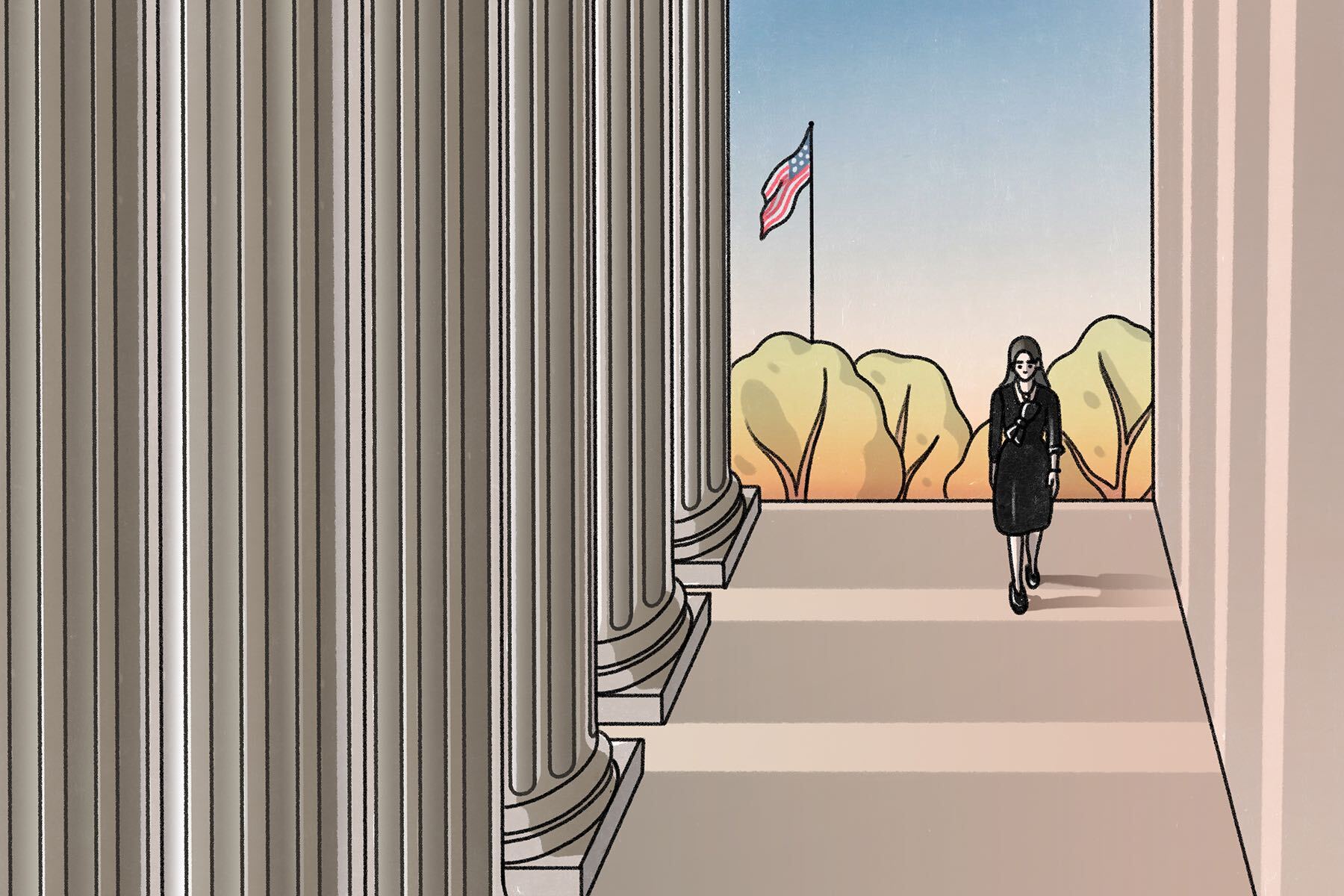When Ruth Bader Ginsburg, “The Great Dissenter,” passed away from cancer complications at 87, American politics as we knew it was upended. Ginsburg, the second woman to be a Supreme Court Justice, was widely considered a feminist icon. Fighting for equal rights as a left-leaning justice on the Supreme Court, Ginsburg coolly argued her opinions, whether she was in the majority or not. Now, her seat is left vacant under the Trump administration and a Republican-majority Senate. Conservative judge Amy Coney Barrett has been nominated and is currently in confirmation hearings.
The Hypocrisy of Senator Mitch McConnell and Senate Republicans
The nomination of Barrett illustrates the hypocrisy that plagues politics. While flagrant mistakes have been committed by both sides throughout the history of U.S. politics, the hypocrisy this time can be solely laid at the feet of Senator Mitch McConnell and Senate Republicans. Their treatment of President Barack Obama’s nominee, Judge Merrick Garland, stands in stark contrast with how they have spoken about Trump’s nominee.
In 2016, Justice Antonin Scalia passed away, giving Obama the opportunity to fill that vacancy. However, almost nine months before the election, McConnell led Senate Republicans to block Garland’s confirmation hearing from even happening. According to McConnell, “The American people should have a voice in the selection of their next Supreme Court Justice. Therefore, this vacancy should not be filled until we have a new president.”
A few members of the Republican party came out with statements filled with promises. One of them was South Carolina Senator Lindsey Graham: “I want you to use my words against me. If there’s a Republican president in 2016 and a vacancy occurs in the last year of the first term … you could use my words against me … that you’re not going to fill a vacancy on the Supreme Court based on what we’re doing here today. That’s going to be the new rule.”
Ginsburg died less than two months before the 2020 election. Before her death, Ginsburg dictated a statement to her granddaughter: “My most fervent wish is that I will not be replaced until a new president is installed.” Despite her wish, despite the fact that we are less than two months away from the election and despite setting a precedent, McConnell called for Trump to nominate his candidate and hold confirmation hearings.
Only two Republican senators opposed this plan and the Senate Judiciary Committee has a Republican majority that includes Graham — all of whom have already signaled that they will vote her in. Going against his own words, Graham wrote on Sept. 21, “I therefore think it is important that we proceed expeditiously to process any nomination made by President Trump to fill this vacancy.” With the votes secured, McConnell went ahead with his scheme: Trump successfully nominated Barrett, and she will most likely be confirmed.
Who is Judge Barrett?
With a swirling storm of politics, accusations and partisan lines, it has been difficult to understand who Barrett is. Republicans are in a rush to fill the seat, especially since polls have shown that Republicans will lose the Senate majority and the presidential seat. Having Barrett as a Justice will ensure a conservative court that will shape the U.S. for decades to come. Democrats are angry at the underhanded tactics that have taken place and oppose having a conservative majority court. Just look at the confirmation hearings so far. Neither side will listen to each other’s concerns, and the hearings have been littered with insults.
Barrett graduated from the University of Notre Dame’s Law School, and now serves as a member of the faculty there. She clerked for Justice Scalia, and in her confirmation hearings, she has reflected on how inspired she was by him. Barrett is a devout Catholic, part of a group called People of Praise. People of Praise is often described as ultraconservative, supporting strict gender roles and opposing abortion and gay rights. Despite belonging to People of Praise, Barrett has stated both in the recent hearing and in a 1998 law review article that she, like all judges, will not have her own personal views influence her decisions on law: “Judges cannot — nor should they try to — align our legal system with the Church’s moral teaching whenever the two diverge.”
However much Barrett claims to separate her religion from her work, her past history as a judge shows her making conservative decisions, including on issues like abortion. Barrett voted for a law that mandated doctors inform parents of minors who wanted an abortion. She also stated that the original Indiana law that required a funeral service for fetal remains could have been constitutional. Additionally, she wanted a state law that banned abortions because of the sex, race or developmental disability of a fetus.
In regards to Roe v. Wade, Barrett wrote in a 2013 Texas Law Review article that “I tend to agree with those who say that a justice’s duty is to the Constitution and that it is thus more legitimate for her to enforce her best understanding of the Constitution rather than a precedent she thinks is clearly in conflict with it.” Based on this statement and her past decisions, Barrett may be willing to overturn Roe v. Wade.
Barrett’s record on health care, sexual assault, immigration and gun regulations is just as conservative as her stance on abortion. Barrett criticized Chief Justice John Robert’s 2012 decision on allowing the Affordable Care Act to pass, and in 2019, she and two other judges made it easier for men accused of sexual assault on campus to challenge the proceedings against them. Barrett dissented from her fellow judges when they voted to place a hold on a Trump administration policy that endangered permanent resident status for immigrants who use public benefits. Barrett dissented in favor of a man convicted of a nonviolent felony to own a gun.
What does the future hold?
If Barrett is confirmed, she will most likely vote conservative for the majority of her cases, rolling back past precedents on abortion rights, gun control and health insurance. Democrats have multiple options.
One option is to change how the current Supreme Court operates. With a possible Democratic-majority Congress looming in the future, Democrats could add seats to the court or add term limits on justices. Republicans and conservatives have already attacked this, despite the fact that Biden did not say that he would pack the court. This would further the Supreme Court as a political battleground. If Democrats do this, Republicans can retaliate the next time they hold a majority. On the other hand, Republicans started the fight by reneging on their own statements and rushing to have their nominee confirmed just days before the election.
Another outcome is possibly replacing justices. The oldest justice is a liberal justice in his 80s. Replacing him would not balance the court. There are two conservative justices that are in their 70s, so there is a slim possibility there.
The most likely outcome is to have a more assertive Congress, especially since Democrats are projected to have a Senate majority. Pass laws to expand the rights and protections that Court decisions so far have decided. If these laws are passed, the Supreme Court’s influence would eventually die down and its work would be confined. In the end, like so many other articles on politics, all that is clear is how important voters are.

















